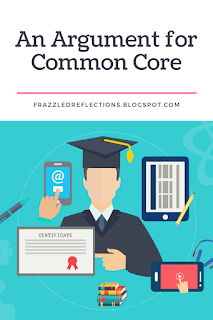A Book Review - Divergent
I love dystopias. I always have. I love the idea of looking at an utopia gone wrong. Dystopias are proof that our sinful natures prevent any kind of perfect world and they warn us against trying. When we try to create a perfect world we inevitably screw it up. Authors use dystopias to criticize society, to point out flaws with much more serious undertones than satire allows.
So for my first book of 2014 I dove into a new dystopia, the Divergent series. The first book opens with 16-year-old Beatrice contemplating her future. She is approaching the choosing ceremony during which all 16-year-olds decide which faction they are going to join. This faction may, or may not, separate them from their family and determines their future lifestyle and occupation. Before they select their faction they take a simulation test that is supposed to help them determine which faction best fits their abilities and desires. Beatrice discovers that she isn't fit for just one faction, but three, making her divergent. She is immediately told to keep it a secret from everyone, including her family. To be divergent is to be a threat to the political and social structures put into place. The rest of the novel stems from her decision to leave her family faction and join another faction all while keeping her identity as a divergent a secret.
I enjoyed the book. It was a fun read and the fact that it took place in Chicago, one of my favorite cities, made it all the more enjoyable. But I would not lump the book in the category of quality dystopian fiction. 1984 warns against a government that is too involved in people's lives, and modern surveillance of the internet, phones, and roadways makes Orwell's warnings and predictions all the more relevant. Fahrenheit 451 warns against the dangers of censorship and the limiting of abstract thought, and our ear buds, big screen TVs, and interactive technology show a present similar to the future that Bradbury predicted. The Giver warns against a society that suppresses human emotion and devalues human life, something that we see through the use of some psychiatric treatment and in discussions of life issues. Even The Hunger Games, enjoyable but not without flaws, warns against our current society's obsession with materialism, violence and reality television, the modern Colosseum that proves that we are not that much better than the Ancient Romans. While reading Divergent I struggled to see the critique. It is an alternative United States, but what human folly created that alternative universe? What is Veronica Roth's message?
I was also slightly troubled by the emphasis on the emerging love story, as if the alternative universe was a backdrop for a teen romance. I love a good love story, but I struggled with the amount of story telling that focused on the developing romance between Beatrice (Tris) and Four. A good romance can be an excellent subplot that keeps readers interested, but it should not drive the story, especially in fiction that has been categorized as "dystopian."
Do I recommend the book? Yes, I enjoyed it and will read the next two books because I am curious about what will happen to the story. I want to know why Lake Michigan has been reduced to a marsh and where the bustling city of Chicago disappeared off to. I want to know what led to the decision to break society up into five distinct factions. And yes, I want to know what happens to Tris and Four (I'm still a sucker for a good love story, after all). But I would not put this book at the top of my list of "The Greatest Dystopias Ever Written." That list is reserved for the books that truly make me worry about the future.



I read the whole thing last night! It's a good thing I'm a fast reader. I was bothered by the love story, too, especially since so many junior high students are reading it! I think the point of her story was that when you chose one quality to focus on (selflessness, education), our society isn't strong. We need qualities of all the 5 groups to be at our best. I'm enjoying it - but don't know that I'd recommend it to young students. I'm eager to read the next ones!
ReplyDeleteKristen, I agree with your assessment, especially as I get further into the second book, which I am also enjoying. Unfortunately, it is distracting me from my other work :-)
DeleteThis comment has been removed by the author.
ReplyDelete